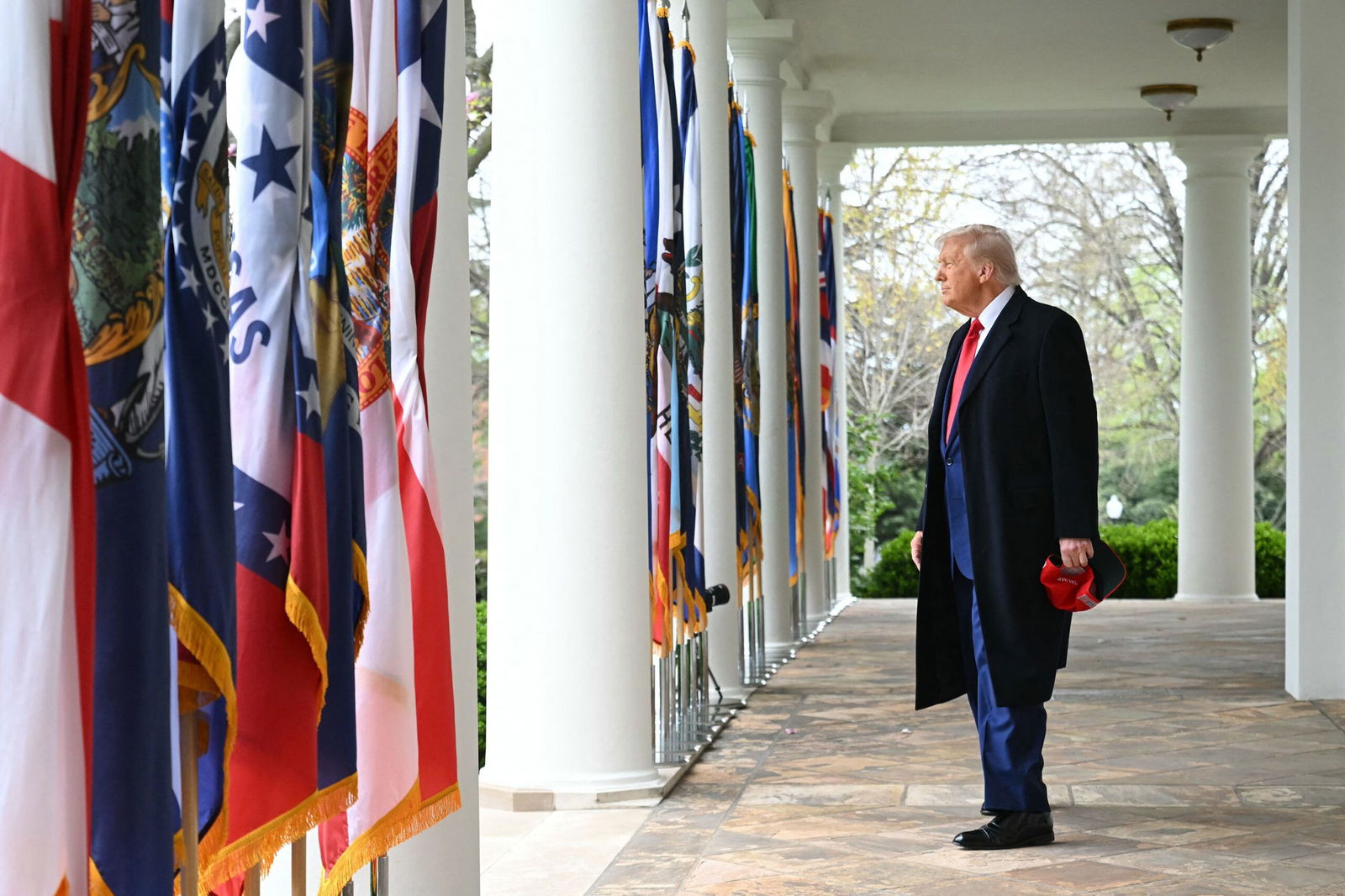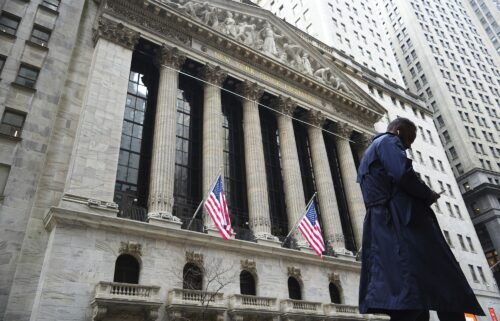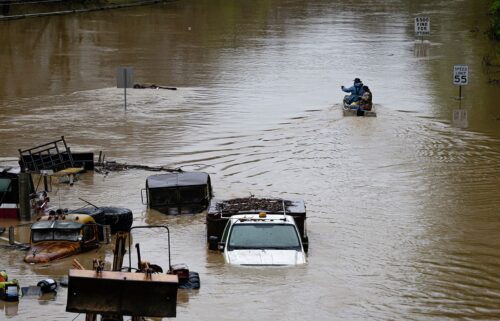This is the stock market’s worst start to a presidential term in modern history

President Donald Trump warned Americans in 2024 that a vote for Vice President Kamala Harris would be a vote for a market meltdown.
By Harry Enten and Matt Egan, CNN
New York (CNN) — President Donald Trump warned Americans in 2024 that a vote for Vice President Kamala Harris would be a vote for a market meltdown.
“You want to see a market crash? If we lost this election, I think the market would go down the tubes,” Trump said at a Pennsylvania rally in late October.
Weeks earlier, Trump confidently predicted that if he lost, “the result will be a Kamala economic crash, a 1929-style depression.”
Trump won the election, but he may have been right about a crash occurring after the election.
Trump and his tariffs have taken a bull stock market and are on the precipice of turning it into a bear faster than any president has overseen in modern history. If the stock market closes in bear territory – a drop of 20% from a recent peak – it would be the earliest in a new administration a bull market has turned into a bear in the history of the S&P 500, which dates back to 1957.
These same tariffs may also take a booming economy and turn it into a recession.
The S&P 500 had lost 15% of its value since Inauguration Day as of Sunday night. And that doesn’t even count the massive losses set for Monday’s opening bell.
The only similar drop for an elected president so quickly into his presidency was under George W. Bush in 2001.
The next largest drop after Bush and Trump was Carter in early 1977. That decline was under 6%, to give you an idea of just how far the rabbit hole the market is right now.
The current market wipeout hit a crescendo after Trump’s “Liberation Day” event, where he shocked and alarmed the business world by promising to increase tariffs at an unprecedented pace. Indeed, two-thirds of the 15% fall in the S&P 500 has been since Liberation Day.
“Liberation Day has been followed by Annihilation Days in the stock market,” Ed Yardeni, of Yardeni Research, wrote in a note to clients on Sunday.
The awfulness of the past two days of trading were matched only by the 1987 crash, the 2008 financial crisis and the Covid crash of 2020.
Of course, the recent market’s plunge alone isn’t all that’s unique about the current situation. What was happening before the plunge makes it particularly special.
Bush took office with a market that was already in decline. As you read this article, it might be hard for some of you to remember or imagine that there was a stock market crash related to the internet.
The bursting of the dot-com bubble plunged the caused the S&P 500 by to drop 10% in 2000. It would, therefore, be tough to say that Bush was responsible for the poor state of the market in April 2001.
Trump, on the other hand, inherited a bull market. The S&P 500 gained 23% in 2024.
Indeed, it is quite easy to say that Trump is directly responsible for the dive under his presidency given how much of it occurred since Liberation Day.
We should note that the 15% drop under Trump in the S&P 500 does not qualify as a bear market yet. A bear market by most definitions requires a drop of 20% from a recent peak. The Nasdaq already crossed that threshold, however, closing in a bear market on Friday for the first time since 2022. The Russell 2000 is in a bear market, too.
An economy in decline
Of course, there is the matter of whether what happens on Wall Street affects or is at least representative of the larger economy.
The answer to the first part of that sentence is probably “yes,” while the answer to the second part could very well be “yes,” too.
Although some Trump officials have argued they are trying to help Main Street, even if it hurts Wall Street, it’s not easy to separate the two.
This isn’t the early 1970s anymore when polling indicated that less than 25% of Americans were involved in the stock market. Those were the days before IRAs and 401(k)s. As of 2024, more than three-in-five Americans were involved in the market in some way per Gallup.
“Wall Street is Main Street,” Yardeni said. “The two streets prosper and suffer together…Main Street owns lots of stocks in American corporations that are facing massive disruptions as a result of Trump Tariffs 2.0.”
Moreover, David Kotok, co-founder of Cumberland Advisors, warned the Trump tariffs will act as a massive supply shock akin to the 1973-1974 oil price shock during the Yom Kippur War.
“The Trump tariffs are a massive tax hike imposed as a sales tax on American consumers,” Kotok said. “Supply shocks mean higher inflation coupled with slow growth or recession, which is the worst of all worlds for the central bank.”
While there isn’t one universally agreed upon definition of a recession, take a look at these odds: JPMorgan has raised the chance of a recession to 60%. It had previously been 40%. Goldman Sachs has raised it from 20% to 45%. HSBC puts it at 40%.
We’ll see if the National Bureau of Economic Research calls a recession before the end of the year. They rely upon a host of metrics to make that determination.
Another definition of a recession is if we have two consecutive quarters of decline in the real gross domestic product. We’ve already seen forecasts for real GDP plummet. Some forecasts have it falling below zero for quarter 1 of this year, and others have it barely staying positive.
The last time real GDP had two consecutive negative quarters in the first year of an elected presidency after not having a recession the year before? 1953, as the United States was coming out of the Korean War.
The only war Trump can point to if a recession does occur is the trade war he started.
And to be clear all of this could become a nasty cycle. If the market becomes convinced a recession is on the way, stocks could fall further. RBC Capital Markets notes that the median loss for the S&P 500 during a recession is 27%.
Confidence is a fragile thing and the steep market selloff could easily spook CEOs and consumers alike. The hole blown in Americans’ 401(k) plans and investment portfolios is so massive that it will be hard to ignore. And if consumers stop spending, all bets are off in this economy.
The-CNN-Wire
™ & © 2025 Cable News Network, Inc., a Warner Bros. Discovery Company. All rights reserved.



